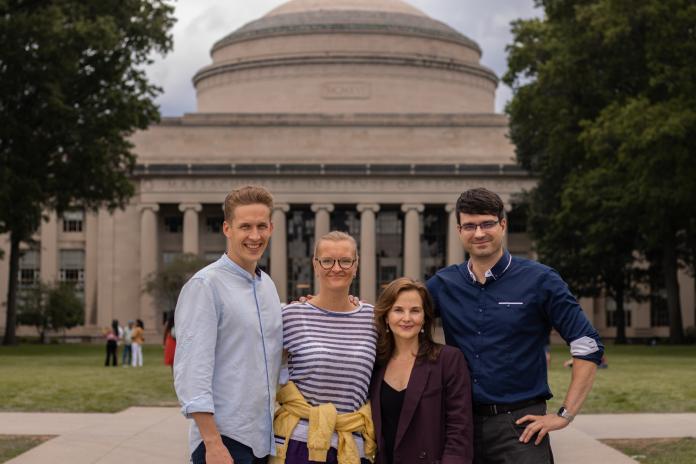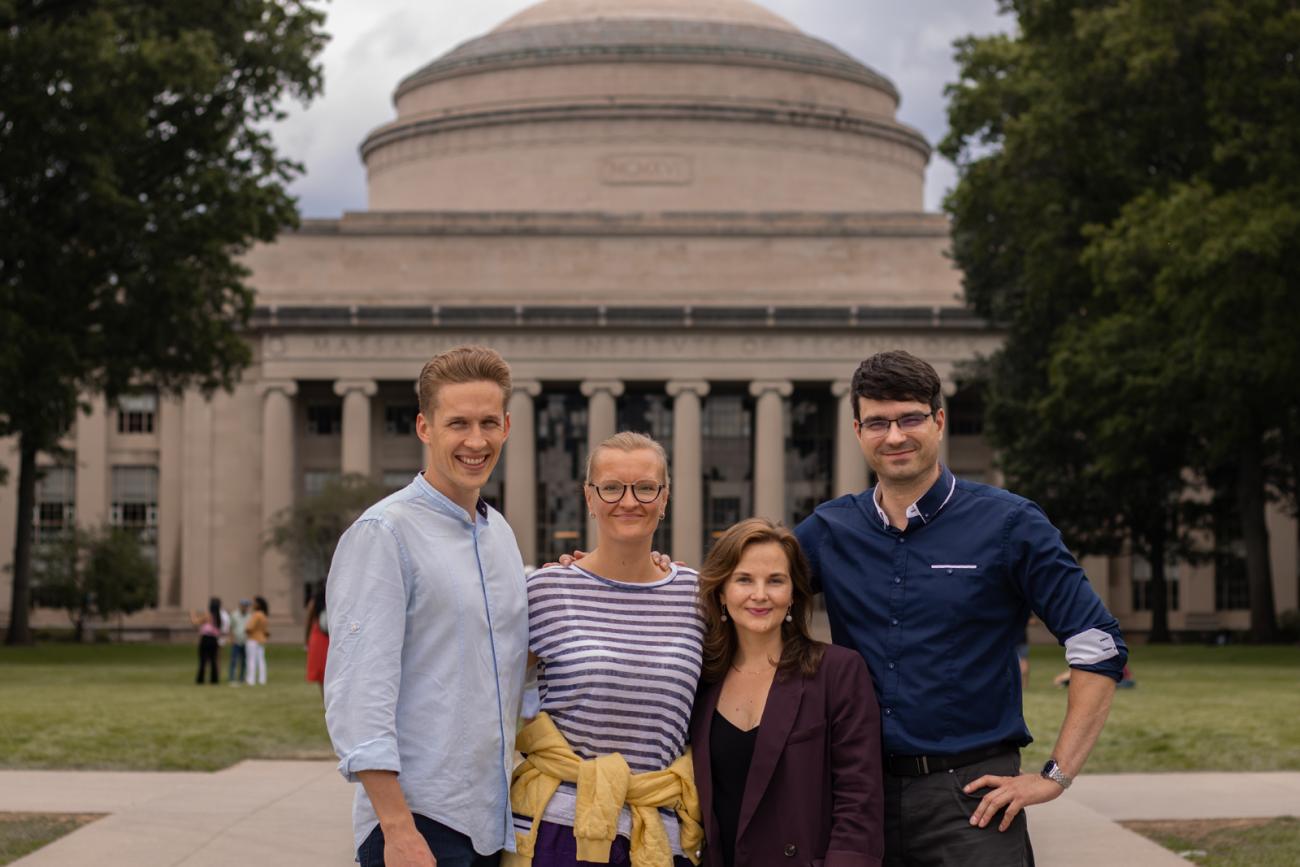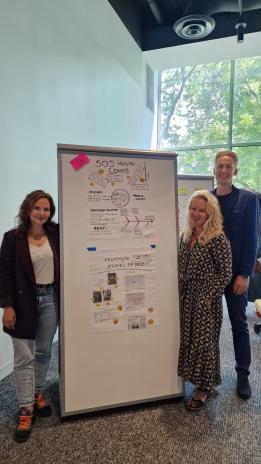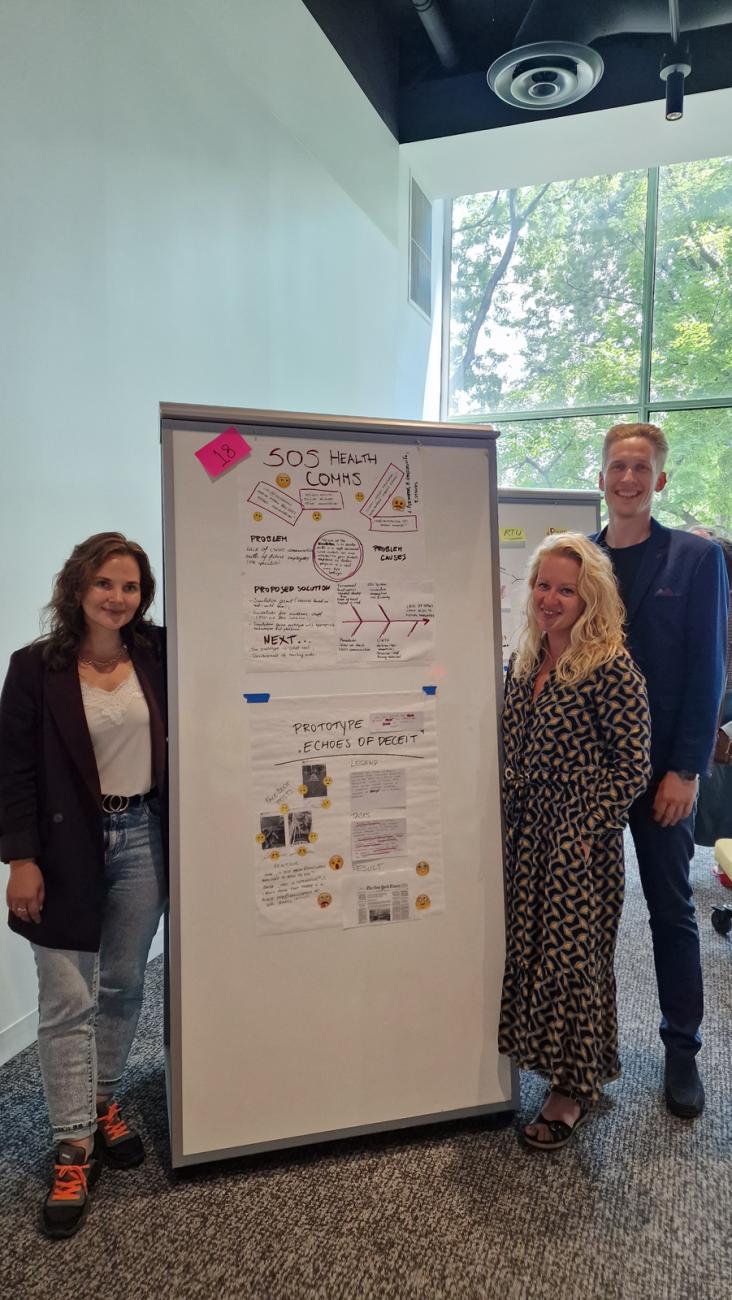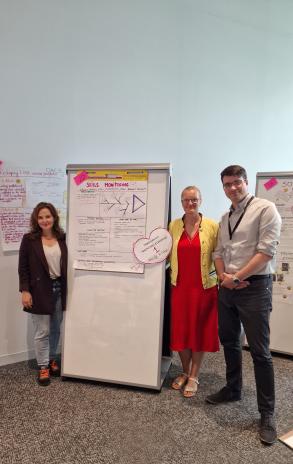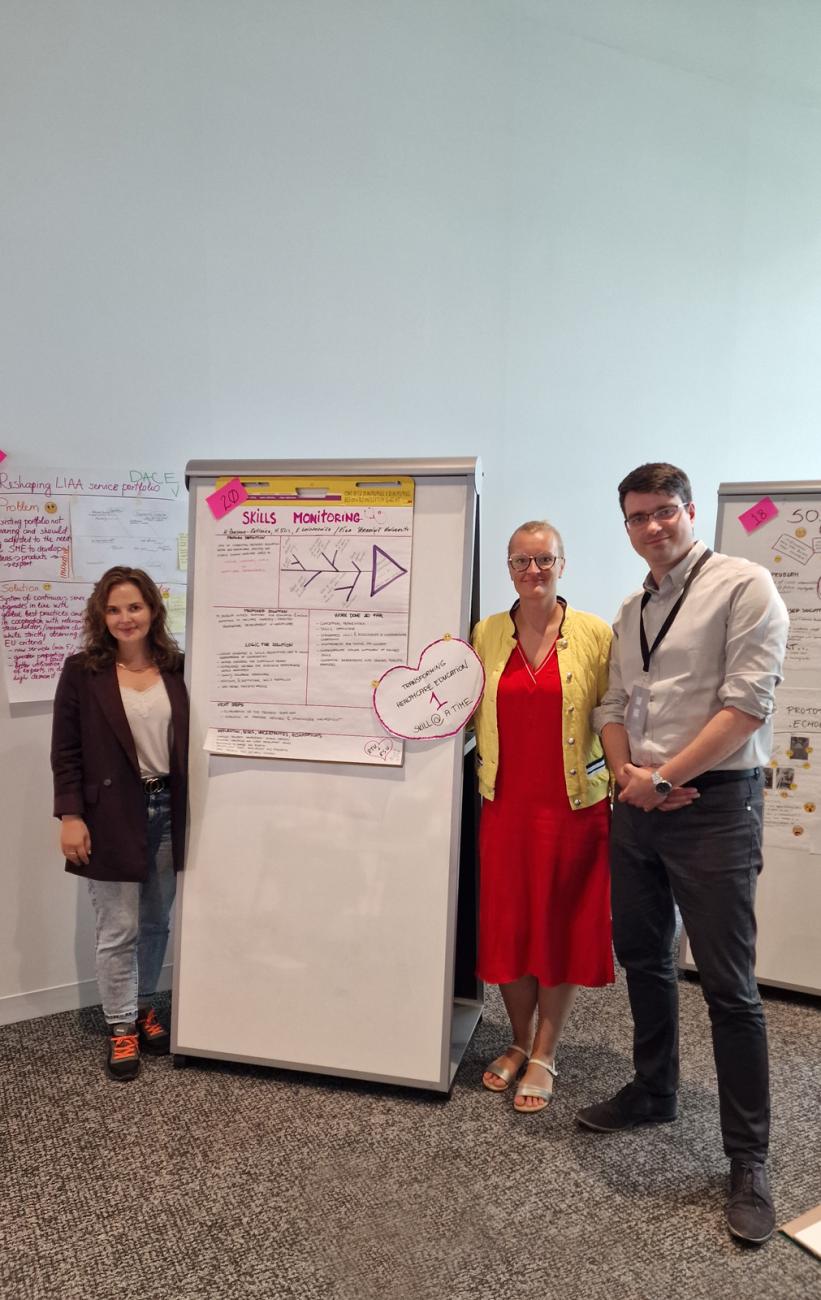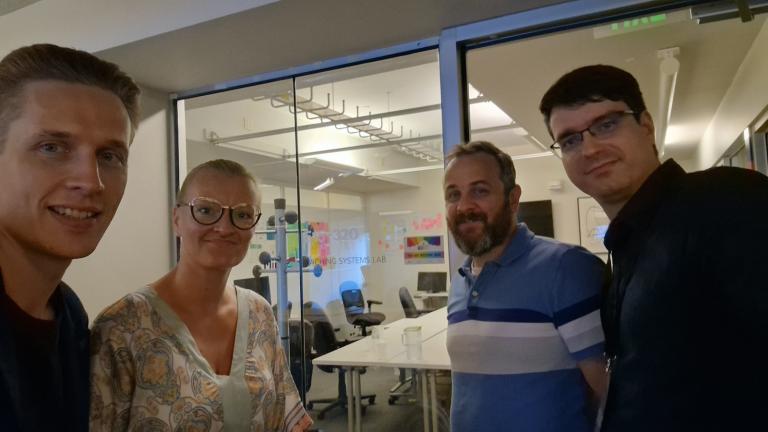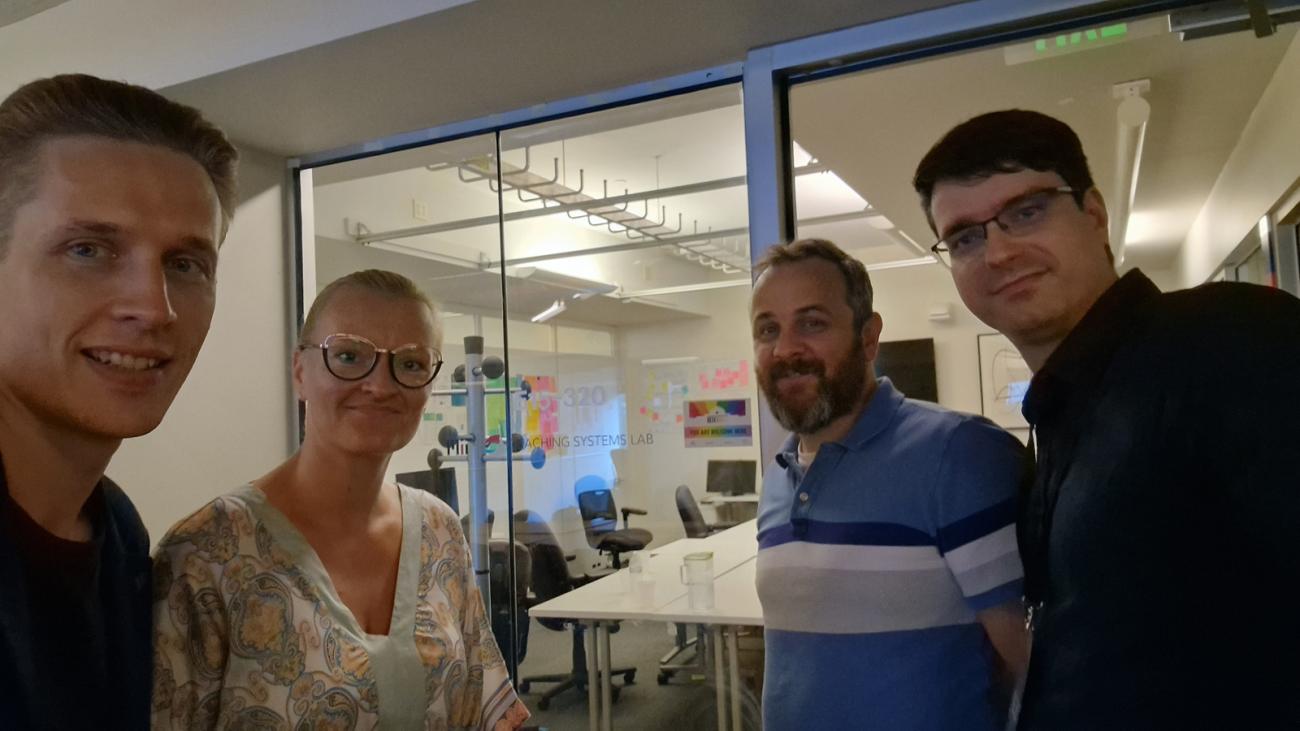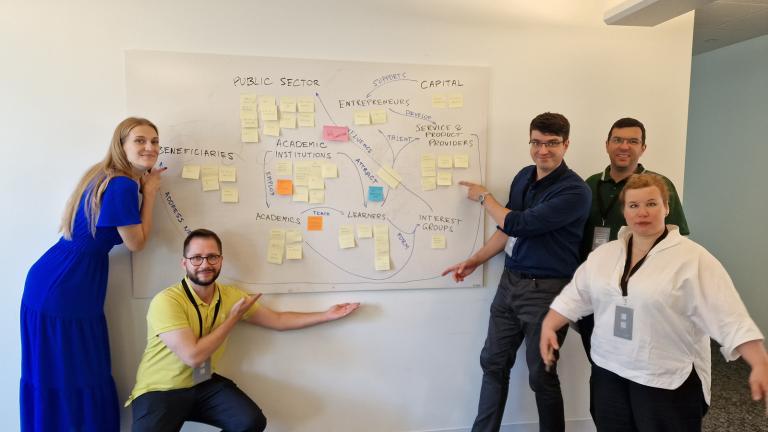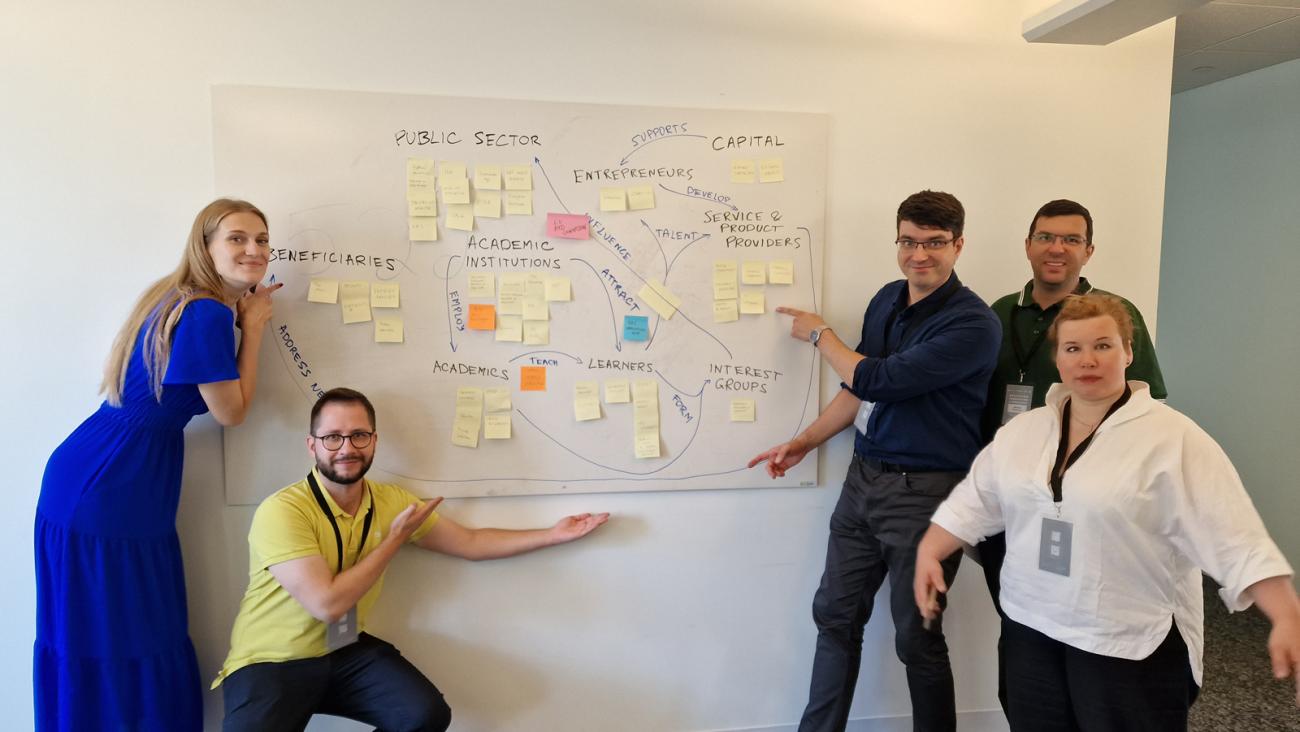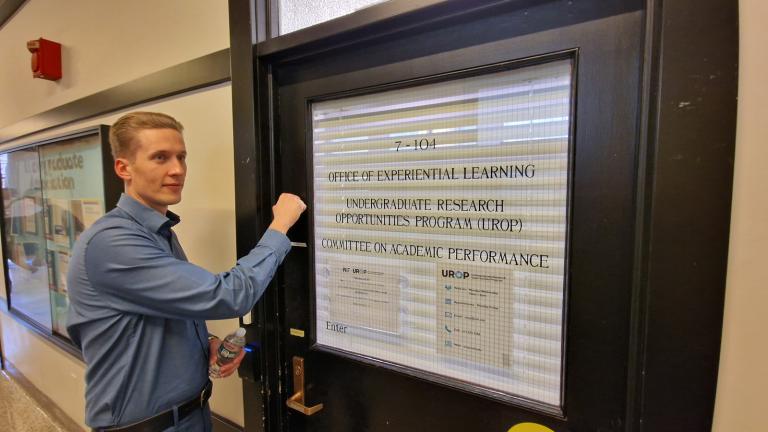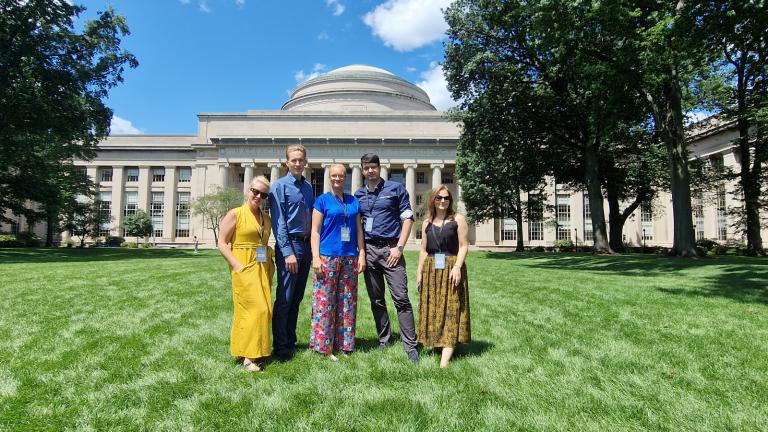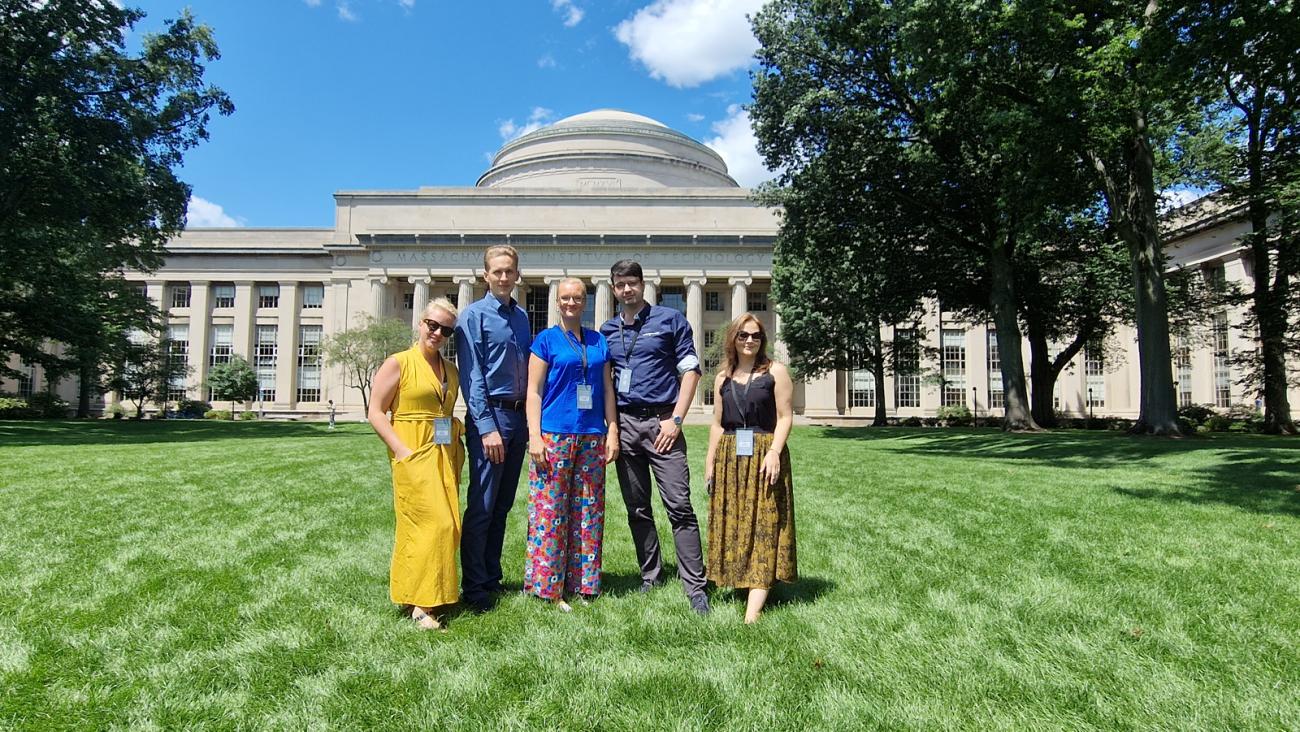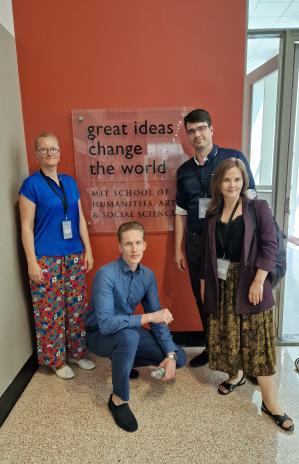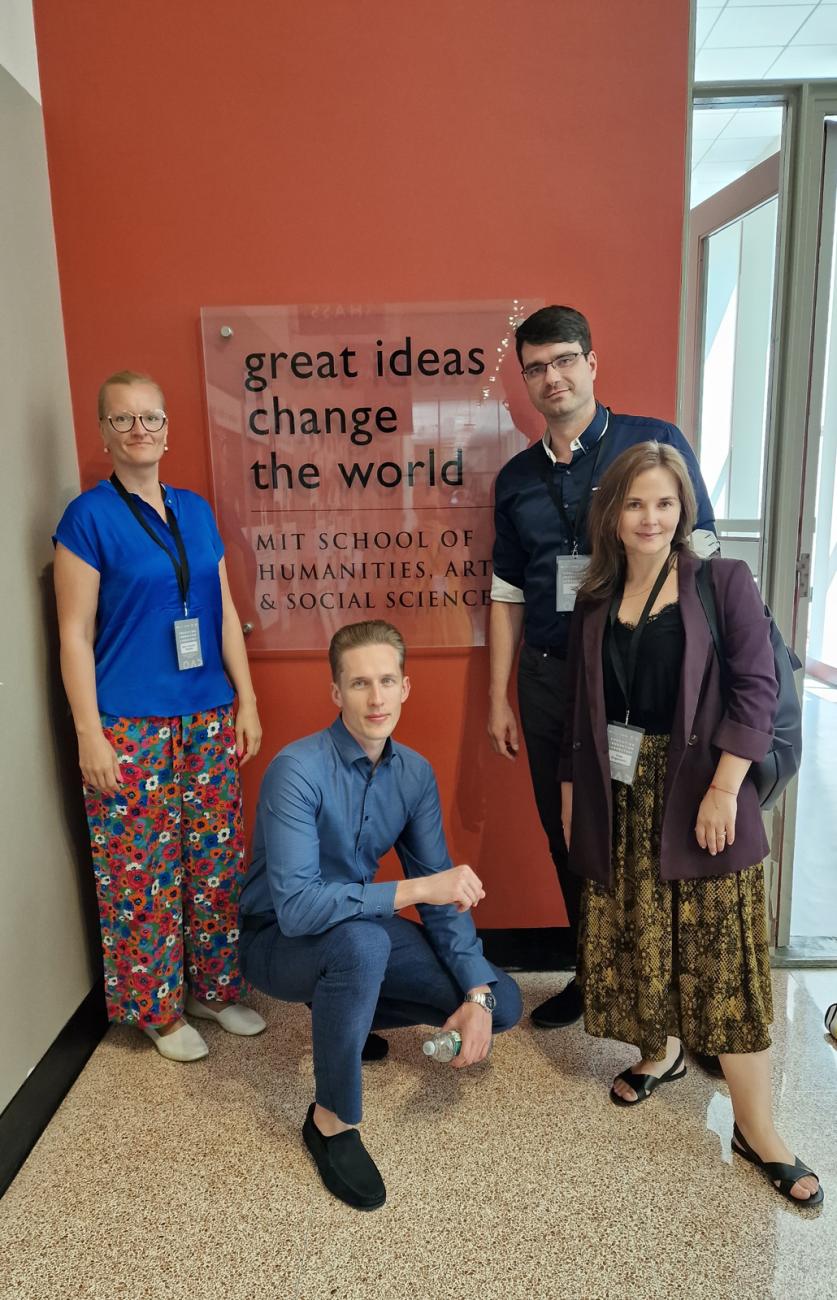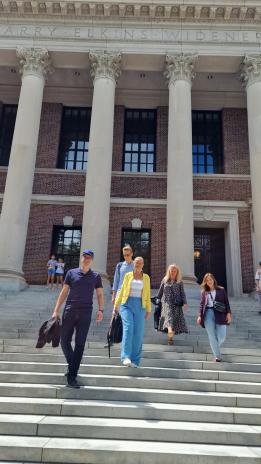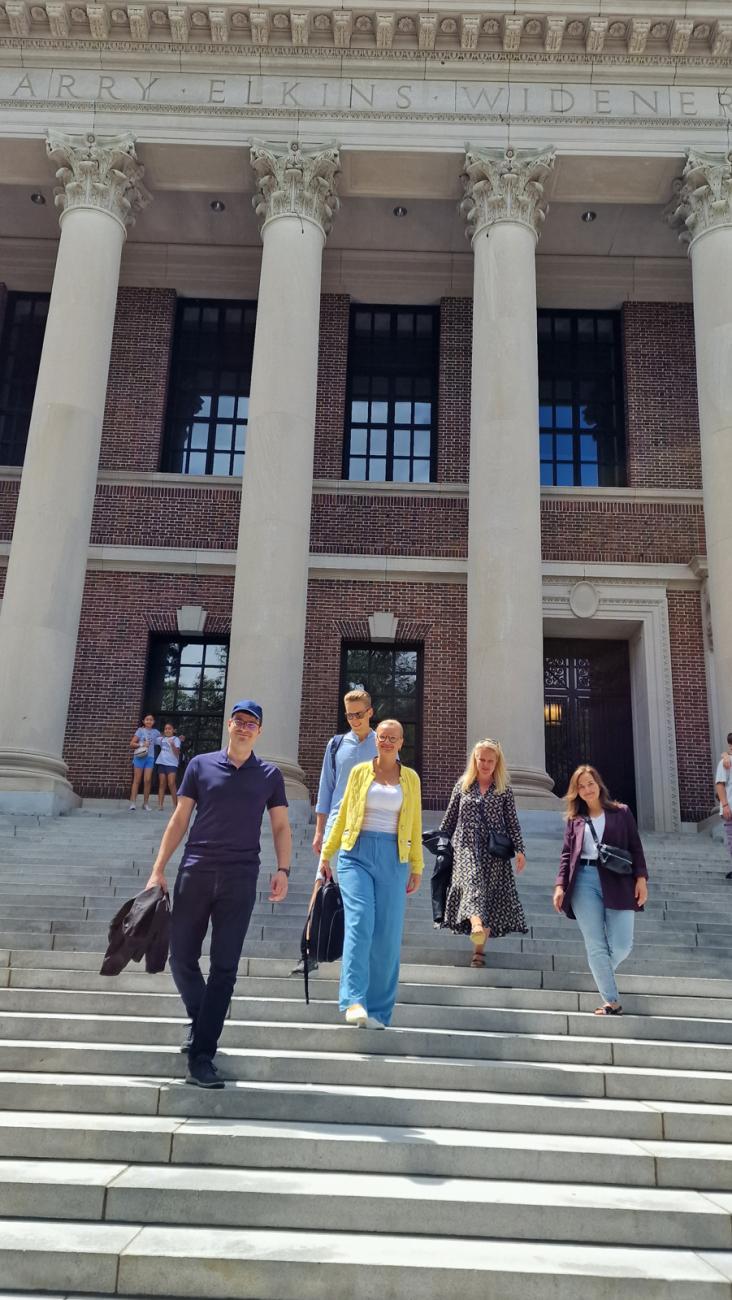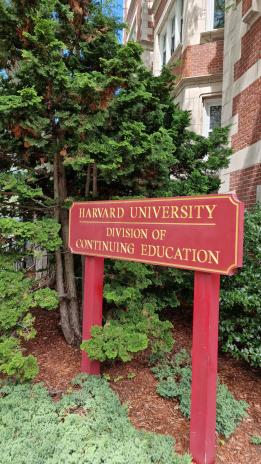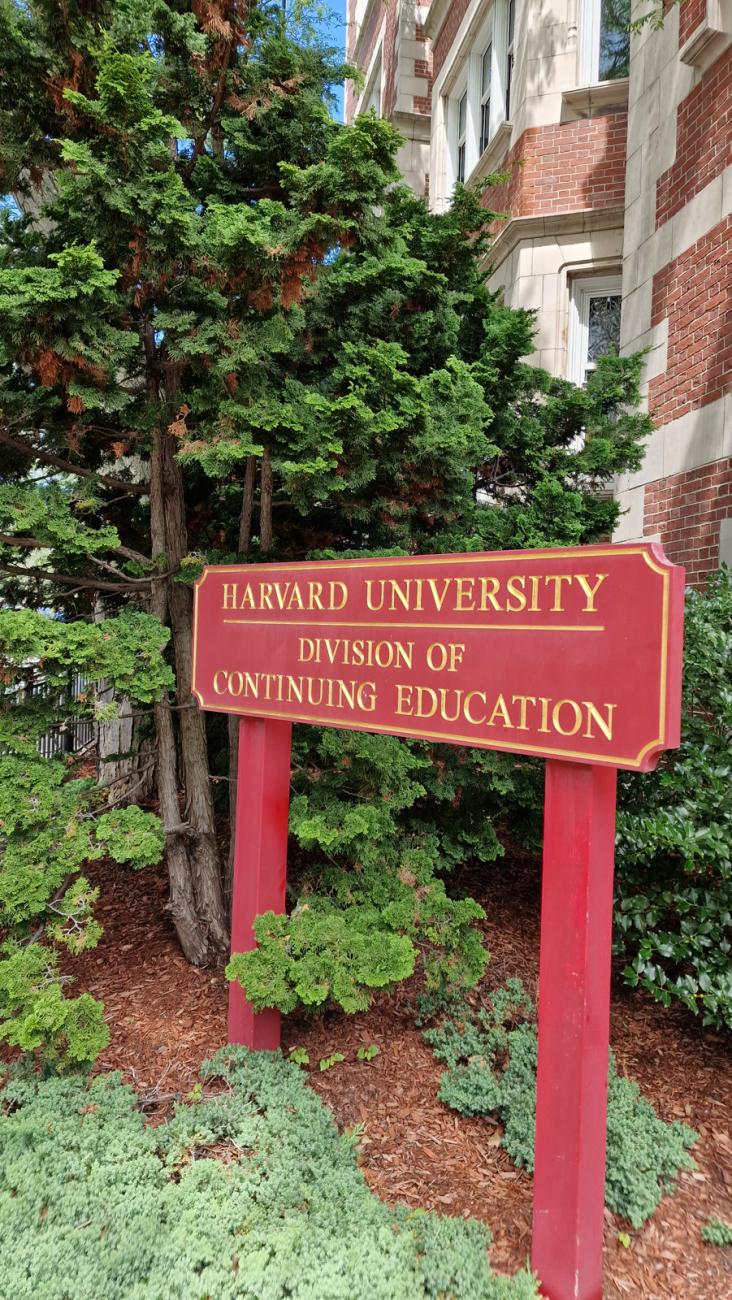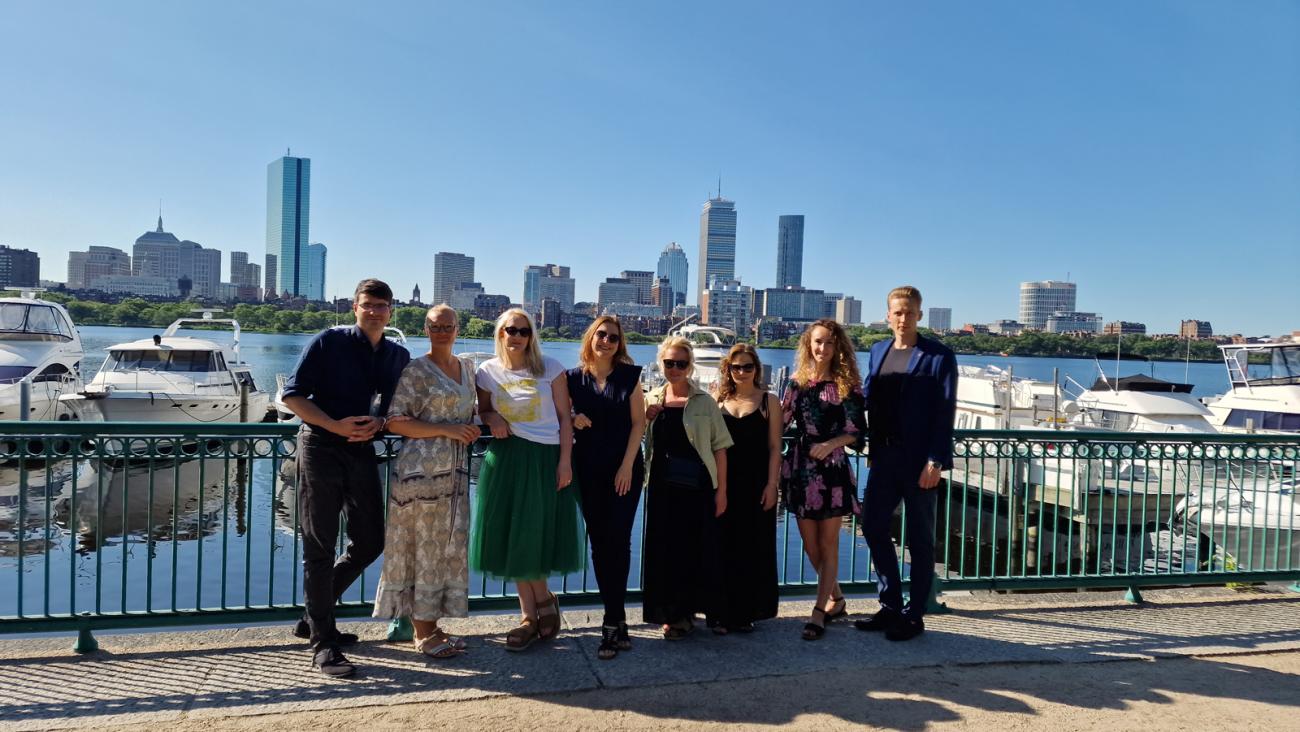RSU develops projects to innovate study process in collaboration with the Massachusetts Institute of Technology
Since April, staff members from the Rīga Stradiņš University (RSU) Centre for Educational Growth (CEG), the Medical Education Technology Centre (METC) and the Faculty of Communication have been working intensively together with the Massachusetts Institute of Technology (MIT) Abdul Latif Jameel World Education Lab (J-WEL) as part of the higher education innovation programme. Two RSU innovation projects will be developed within the framework of the programme by November 2023.
The first project aims to establish a unified skills-monitoring system that will allow for the harmonisation, assessment, and implementation of skills acquisition in the education and healthcare sectors. The aim is to strengthen the quality of education and health care and promote patient safety. The second project aims to develop a prototype of a simulation game and study aids for teaching crisis communication as part of the study process.
Work on the education innovation projects programme as well as a visit to Boston, Harvard University, and the Massachusetts Institute of Technology this month provided an opportunity to see the cumulative development trends in European higher education in the context of the United States. Worlds sometimes described as opposites here, however revealed many similarities and shared aspirations to make education more practical, more creative, more relevant to real life. The project participants from RSU found it gratifying to see that the work they do every day at the CEG and METC resonates with the development and innovation goals that permeate the quality culture of MIT. They concluded that they need to learn to be more skilled at highlighting and communicating accomplishments, otherwise much of the work that they do is taken for granted.
After talking to their MIT counterparts, the RSU representatives unanimously agreed that they must continue to work on strengthening higher education based on competences, i.e. learning outcomes, and on enhancing a true synergy between studies and research, where neither component is a priority, but both are complementary and co-dependent. Additionally, great effort must be put into supporting teaching staff and continuously analysing the quality of studies at different levels. MIT approved of the work being done at RSU to improve the pedagogical competence of the University’s teaching staff and to support innovation in the study process. Staff at the RSU School of Junior Academics take special care of the members of the teaching staff who have just started their academic careers, which is in line with MIT’s support policy. Peers at MIT who work on providing pedagogical support for the modernisation of studies and research appreciated the daily advice that the CEG offered daily and how lecturers' initiatives in innovation projects were strengthened.
RSU representatives from the CEG met with representatives of several MIT laboratories separately (D-Lab – designing for a more equitable world, Teaching Systems Lab, Teaching + Learning Lab, MITx Digital Learning Lab). They met to discuss future development trends and opportunities for cooperation in the continuing education of teaching staff, MOOC (Massive Open Online Courses), or asynchronous study course design, artificial intelligence and technology integration in the study process.
It is clear that the differences between MIT and Latvia are due to the discrepancy in availability of resources, but it is also clear that resources alone are not a panacea. RSU pays a lot of attention to the innovation design process, both in prototyping and in developing RSU education projects further as well as in assessing the path for innovation overall. This leads to the conclusion that higher education in Latvia is often dominated by an unwritten rule that there is no room for mistakes. What this means is, that with limited time, financial and human resources, the first attempt must lead to sustainable, commercially viable innovations. The stories from the most prolific innovation designers at MIT showed that most ideas, innovation prototypes, and start-ups are doomed to fail, however it is important to note that the numerous mistakes that happen in the creation process are not seen as a negative, but rather celebrated and seen as a normal part of growth and even a valuable resource for development. In conclusion, the participants call for individual, institutional, as well as national reassessment of how people in Latvia think about creating and strengthening innovation in the field of education.
Participants also observed differences in the freedom of expression and normative flexibility between how teaching staff, students and managers at MIT operate, compared to Latvia. Processes at MIT must be organised and systemically thought through, but they are primarily driven by dynamic needs that can only be accurately identified through creative learning and research. In Latvia, there is a tendency to put the process and the results, both externally at the national level and internally at the institutional level, into rigid frameworks and conditions for success, thus failing to extract the added value from potential mistakes and to build on this in subsequent projects or phases.
Overall, participants reflected that the main benefits of participating in the programme and visiting MIT were the time they received to think, the opportunity to align with international trends, as well as the new and strengthened contacts that were forged with Latvian and international peers.
Related news
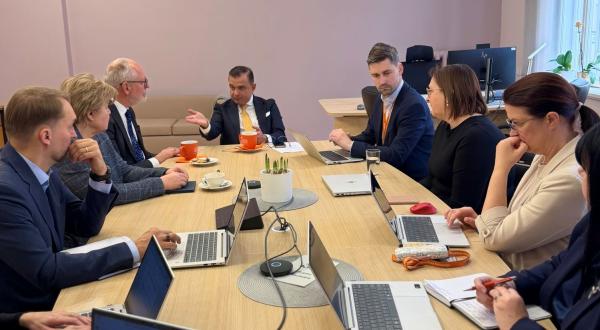 Discussions underway on developing Latvia’s first bachelor-level paramedic programme at RSUDevelopment, For High School Students
Discussions underway on developing Latvia’s first bachelor-level paramedic programme at RSUDevelopment, For High School Students